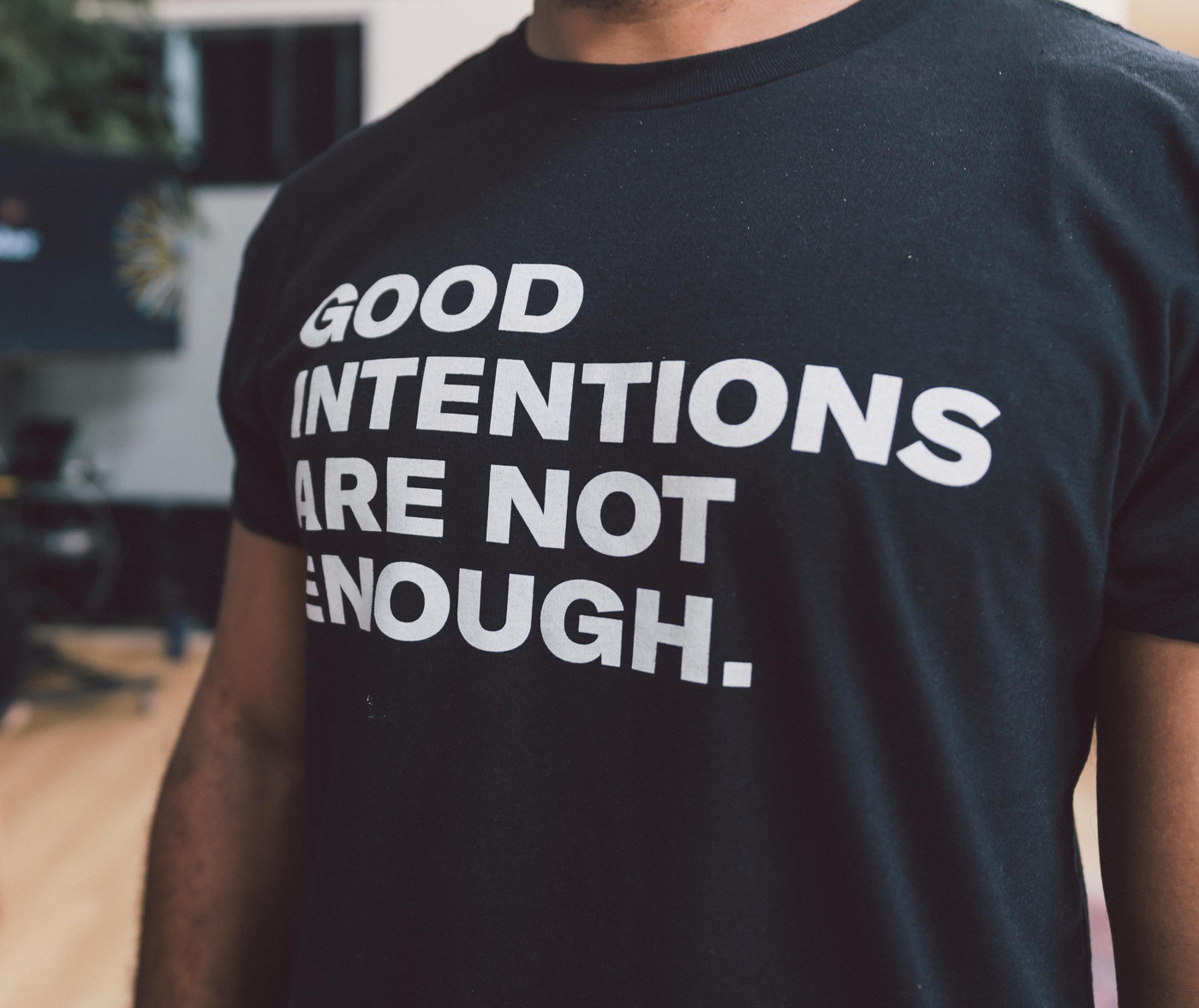Being an Ally

Introduction
In a world filled with diversity and unique experiences, it's crucial to be a good ally to those who may face prejudice and discrimination. The LGBTQ+ community; racial minorities; nationalities foreign to the country you are in; non-males in a still patriarchal society, there are many groups that face prejudice and discrimination even in the modern day.
You may not belong to any of these minority groups. I myself am a straight white male. I’ve never encountered a scenario where my identity has held me back. If anything, although I cannot pinpoint a particular moment in my history, I almost certainly have benefitted from privileges that come with this identity.
I, and perhaps you too, don’t personally encounter the same struggles as individuals from minority groups, or perhaps you identify with some but not others, but that doesn't mean we can't be a supportive advocate for our friends and family who do. Being an ally is about recognizing and addressing prejudice when it doesn't directly affect you. But as sympathetic humans, we want to protect our fellow beings from the evils of the world.
In this article, we'll explore how to identify prejudice, spot toxic comments, and tackle it head on.
Understanding What Toxic Culture And Prejudice
1. Educate Yourself:
Being a good ally begins with self-education. Take the initiative to learn about the experiences and challenges faced by different minority communities, such as LGBTQ+, racial, cultural, and religious groups. Books, articles, online videos, there are many resources out there of members of minority groups sharing their lived experiences. Listen to their stories, and above all, believe them. These experiences will help you build a database in your mind to help identify similar situations in the future.
2. Challenge Your Own Prejudices and Biases:
Reflect on your own biases and preconceptions. Everyone has biases, it is impossible not to as we are all products of our upbringing and surroundings. But being aware of them is the first step towards being a better ally. This is not easy, you may learn some uncomfortable traits you have been carrying for many years and seek to squash such revelations for fear of reprisal. That is OK, identifying and unlearning these biases is what makes a good ally. Failing to do so is what perpetuates toxic culture.
Identifying Toxic Comments
1. Recognize Harmful Language:
Toxic comments often hide in plain sight, disguised as jokes or casual remarks. Be vigilant about language that perpetuates stereotypes, slurs, or generalisations about any group. Understand that seemingly harmless comments can contribute to a hostile environment. Even so called “benevolent prejudice”, while seemingly complimentary to a person, can have negative effects. For example, expressing the idea that all Asians are good at maths, can make an Asian colleague who is weak at maths feel like they are not a “real” Asian.
2. Encourage Inclusivity:
In conversations, meetings, or social gatherings, promote inclusivity by ensuring that everyone's voice is heard. Interrupt harmful comments gently but firmly and redirect the conversation to more respectful and inclusive topics. Any trait attributed to a minority group, positive or negative, is a form of prejudice. Include a diverse group of people in meetings, and not just as set dressing, but encourage them to engage in the conversation too.
3. Use Your Privilege:
Acknowledge that your privilege allows you to speak up without facing the same consequences as marginalised individuals. Use this privilege responsibly to challenge harmful comments and behaviours. If a colleague, Mr A, makes a homophobic joke in the presence of a homosexual colleague, Mr B, then Mr B may feel that speaking out against such language will come back to bite them professionally. Particularly if Mr A is in a more senior position. This is an opportunity for you to use your privilege to assist in deconstructing toxic work culture.
Tackling An Instance of Toxicity
So you have educated yourself and feel ready to help your fellow human beings. Next is the most difficult step: tackling toxic culture the moment it rears its ugly head. Below are a few steps you can take to guide you in battling instances of prejudice:
1. The Moment of Surprise
Pilots, surgeons, race car drivers and more professions requiring high speed reactions to stimuli need thousands of hours to hone their reflexes and responses. Responding in social scenarios is not so different. You may be having a pleasant conversation with colleagues in the break room, when one colleague makes a distasteful remark regarding a minority group, perhaps playing on a longstanding belief or popular joke. Assaults are often subtle, ambiguous and not clearly identifiable. You may give a half-hearted laugh to avoid social embarrassment. But after several moments, you will hopefully recognise the prejudice thanks to your recent research in the previous steps.
2. Clearly Reject the Harassment
We wish we could respond to situations instantly, but this will be impossible, especially without practice. Even if your response comes later, by several seconds, minutes, even hours or days later, responding at all is key. Clearly prohibit the language publicly, with direct language such as “That’s not funny” or “Don’t say that”, or with indirect or even ironic language if you require a softer touch, such as “That’s quite an outdated joke, don’t you think?” or “I don’t think many people find that funny”.
3. Name What Happened
Prejudice hides from public view, so shining a light on it will help dispel its strength. The moment you hear it, you could disarm it quickly with a remark like “Sorry, could you repeat that? I’m not sure what the joke was”. If you manage to identify the specific prejudice made by someone, you can call it out by its name, with remarks like “That sounds a bit racist, don’t you think?”, or “Homophobic remarks aren’t welcome here”. Once someone is made aware of the prejudicial statement they have made, the public embarrassment will push them to apologise and hopefully not commit such harassment again. This can be done in private with the perpetrator to avoid backlash against them, which may only damage the situation and push them further away from a more mindful attitude.
4. “It was just a joke”
You will more than likely hear this excuse from the perpetrator. Lighten up, it was just a joke. But we choose what we joke about. Using a bigoted opinion of some minority group to make a joke perpetuates negative stereotypes and damages social cohesion.
5. Talk With The Concerned Person(s) in Private
Find a moment to talk with the target(s) of the toxic comment in private to gauge their feelings. They may not be concerned at all, or greatly troubled. Either way, showing solidarity will show them that they are not alone.

Conclusion
Being a good ally requires a commitment to ongoing learning, active listening, and standing up against prejudice in any and all forms. By identifying prejudice against communities you are not part of, recognizing toxic comments, and rejecting excuses you can contribute to a more inclusive and equitable society. Remember, being an ally is a journey of growth and empathy, and your efforts can make a significant difference in the lives of those you support.




